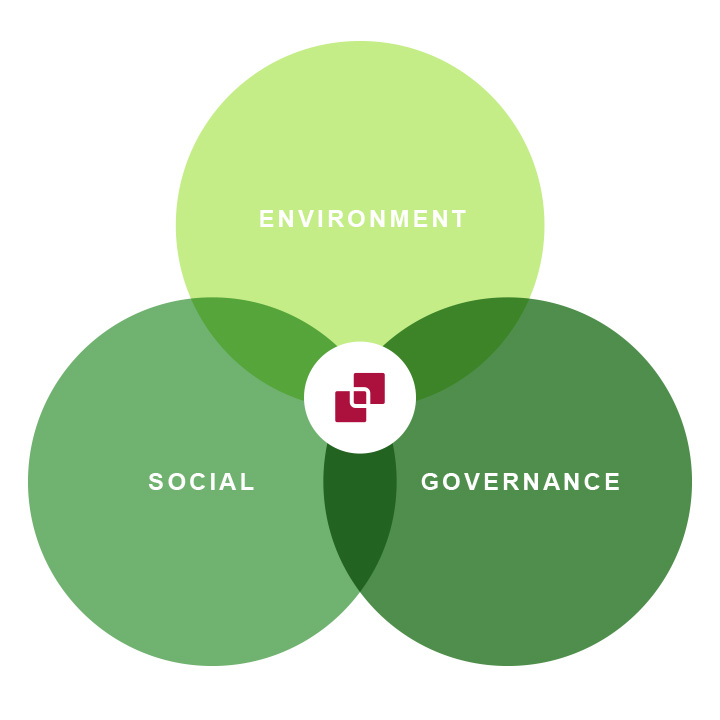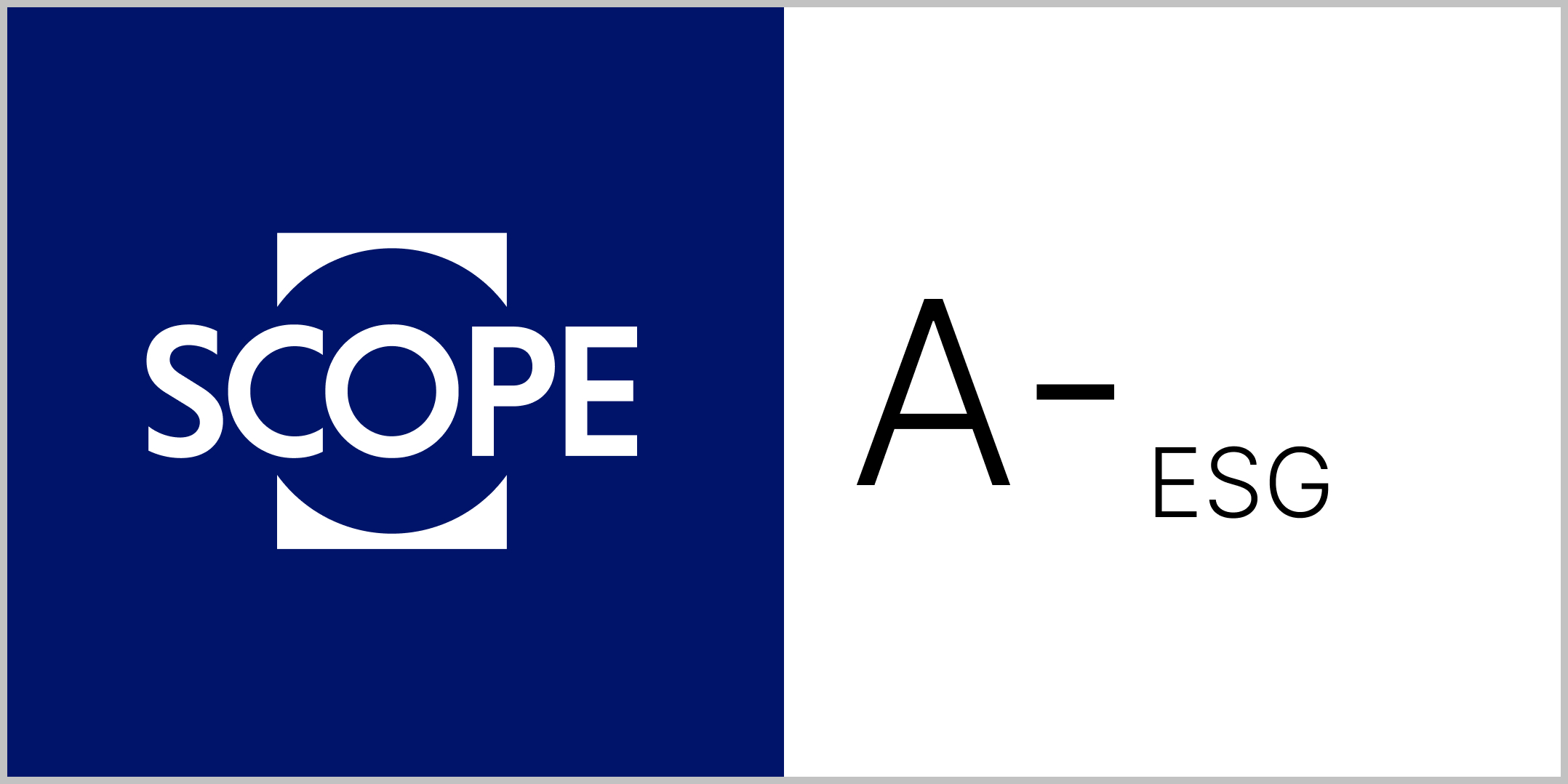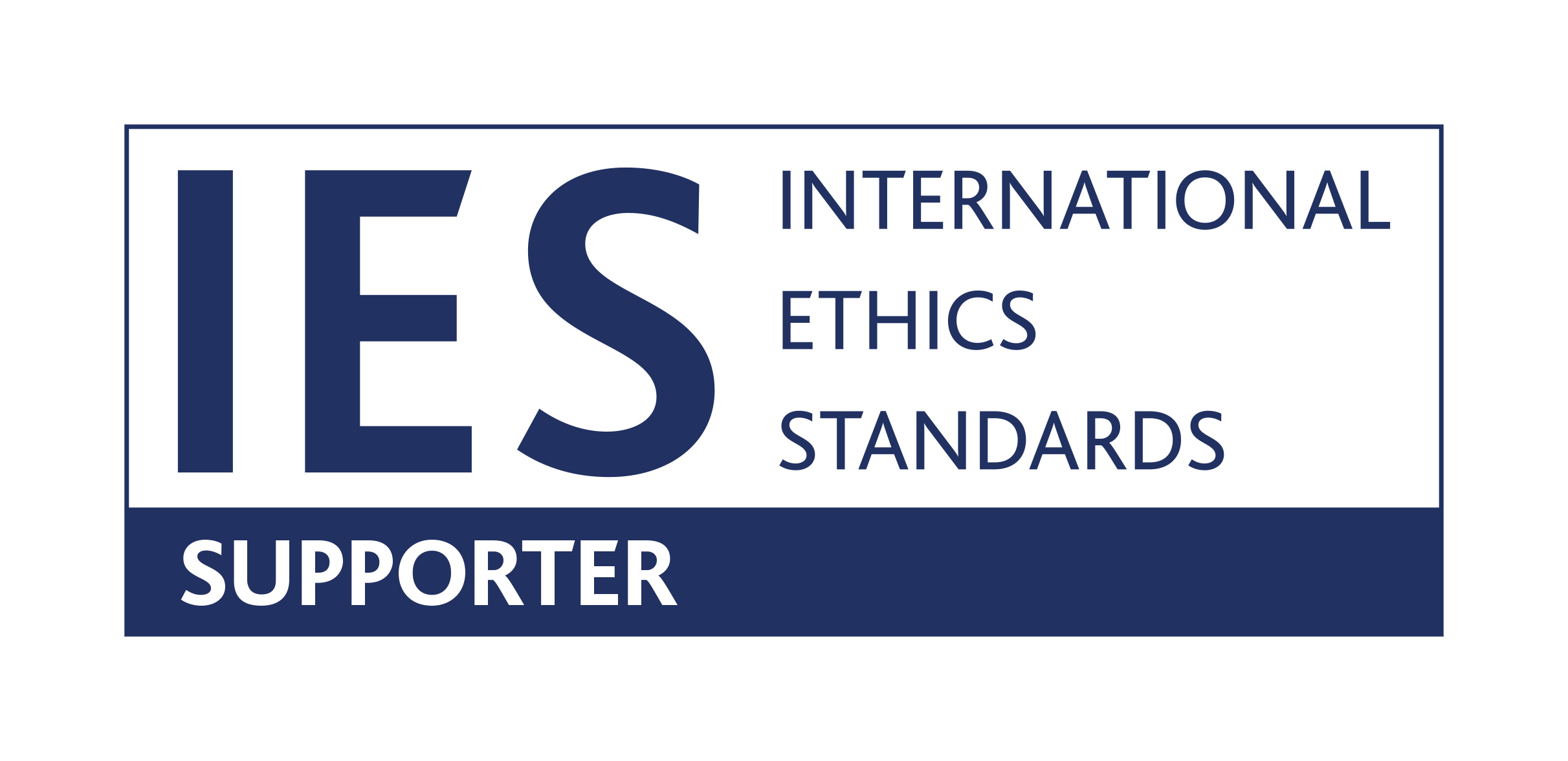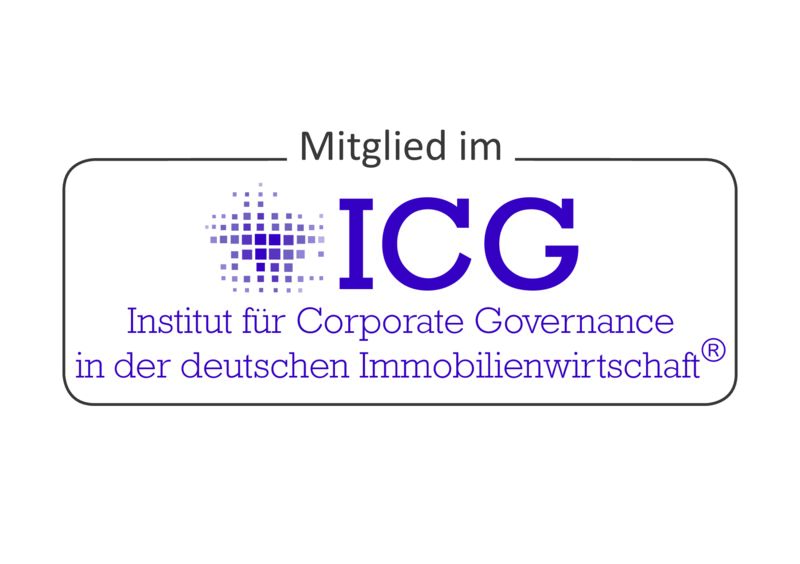Our basis for sustainability
ESG: Environment - Social - Governance
The 3 pillars
Environment
Here the focus is on generating and using renewable energies, minimising the use of non-renewable resources and energy consumption and reducing pollutant emissions.
This pillar is based most closely on the original idea of not over-exploiting nature. This means only using the natural foundations of life to the extent that they are able to regenerate themselves.
Social
Includes aspects such as occupational safety and health protection, diversity or social commitment.
A state or society should be organised in such a way that social tensions are limited and conflicts cannot escalate but can be resolved by peaceful and civil means.
Governance
This basically means sustainable corporate governance. This includes topics such as corporate values or corporate governance control and monitoring processes. A society should not live economically beyond its means, as this would inevitably lead to losses for future generations. In general, an economy is considered sustainable if it can be operated on a permanent basis.


In the LHI Group
For the LHI Group, sustainability is regarded as a concept that supports the company.
Companies are successful in the long term if they are managed with a long-term view. We take into account what the long-term consequences will be when making current decisions.
The LHI business areas follow exactly this concept.
Structured Finance is geared to the long term. On average, the commitments last 20 years and the customer relationships are just as long-term.
In the area of investments, a decisive factor for success is the question of how sustainable a product is.
Our standards
An essential prerequisite for successful and appropriate sustainability management and the achievement of sustainability goals is the organisational anchoring of sustainability in the company. In addition to the active involvement of management, this includes in particular the creation of suitable organisational structures to ensure central, transparent and company-wide management of the implementation and control of all activities from a sustainability perspective. Regulatory requirements are taken into account and sustainability targets are achieved with clearly defined competences and tasks.
Sustainable thinking and actions can be found on all company levels. In the person of the Chief Sustainable Officer (CSO), the topic of ESG is anchored at the highest management level of the Group with clear responsibility. LHI, KVG and CapMan have also each appointed an officer with overarching specialist responsibility for the topic of ESG. The ESG officer takes part in all sustainability- related committees, has a coordination and multiplier function within his company and reports to the CSO. All operating units affected by ESG topics also have a responsible employee
who also takes part in the committees relating to the specialist department and is responsible for knowledge transfer in their specialist area. Committees related to sustainability include the Sustainability Advisory Board, which acts in an
advisory capacity to the Executive Board, the Sustainability Jour-fixe, which serves to promote dialogue at an operational level, and working groups, which - as required and for a limited period of time - work on solutions to specific problems such as new regulatory requirements.
The most important contractual partners are also reviewed as part of the ESG assessment of a transaction. This mainly involves publicly accessible sources. In particular, this also involves compliance with the minimum social safeguards. It is checked whether the respective company has its registered office or production site within the EU and thus whether the laws and standards that apply within the European Union apply or whether the project partner has signed up to an internationally recognised standard. Furthermore, it is checked whether an ESG rating or a voluntary
commitment that goes beyond the legal requirements has been published for the respective company. In addition, an ESG score is obtained from Creditreform (Crefo). The threshold for cooperation with all business partners is the Crefo ESG score defined for LHI KVG's new business.
LHI KVG is subject to regular external and independent sustainability ratings. An ESG Capability Rating from the rating agency Scope was commissioned for the year 2024. Scope assigns LHI Kapitalverwaltungsgesellschaft mbH an initial ESG Capability Rating of A- ESG. This certifies the company's good quality and competence in the context of its current and future ESG orientation
LHI KVG has been a member of the United Nations Principles for Responsible Investment (PRI) since 10 May 2023.
"Together with its international network of subscribers the PRI-Initiative dedicates itself to the practical implementation of the six principles for responsible investing. The aim is a better understanding of the implications of investment activities on environmental, social and company management topics as well as the support of the subscribers with the integration of these questions into their investment decisions."
The six principles were developed by investors and are promoted by the UN. In the meantime, more than 1,400 members from 50 countries have joined the initiative that together have investment capital of more than USD 59 trillion.
In addition, our own-developed LHI Scoring Model, which makes it possible to assess the environment, social and und governance (ESG) profile of real estate investments in various real estate use classes, is used. This is how we differentiate ourselves from the competition. LHI is also a supporter of the IES International Ethic Standards and has joined the ICG Institute for Corporate Governance in the Real Estate Industry.
Together with 26 founding members from the aircraft finance industry, LHI KVG is a member of the sustainability initiative "Impact on sustainable aviation e.V.".
In addition, LHI is a supporter of the IES International Ethic Standards and has joined the ICG Institut für Corporate Governance in der Immobilienwirtschaft.
The LHI Group has been measuring its CO2 emissions since 2020. The emissions caused by business activities according to Scope 1, Scope 2 and partially Scope 3 (Greenhouse Gas Protocol - GHG) are offset in the balance sheet.
The emissions of 578 t CO2 in 2022 were reduced to 558 t in 2023.
The measurement is carried out by the Munich-Ebersberg Energy Agency. Since this year, we have offset our greenhouse gas emissions through the “Aktion Zukunft+” programme of the District of Munich, an initiative to secure funding for climate protection projects.
By investing in “Zukunft +” certificates, local projects are supported in addition to the purchase of international certificates. We have already purchased certificates to offset 625 tons of CO2 for the years 2024 and 2025.
Internationally, we have opted for Gold Standard certificates for a solar park in India (GSF register (goldstandard.org)). Locally, we support two forest conversion projects in the districts of Munich and Ebersberg
In addition, the LHI Group has invested in its own renewable energy projects. By investing in these projects, more than 25,936 tones of CO2 were saved in 2023 alone. However, according to the GHG Protocol, these savings cannot be offset against the own CO2 footprint.
LHI is a member of the initiative “Die Klimaneutralen” (https://www.die-klimaneutralen.de/), a joint initiative of the districts of Munich and Ebersberg.
Since April 2021, LHI has also been home to three bee colonies at the Pullach campus.

Sustainable Finance
The EU “Sustainable Finance” Action Plan sets out three main objectives::
- Reorientation of capital flows towards a more sustainable economy.
- Better mapping of financial risks arising from climate change, climate regulation, waste of resources, environmental degradation and social problems in investment and financing decisions.
- Higher transparency and long-term orientation of financial and real economic activities and decisions
One of the measures under the Sustainable Finance Package is the proposal to introduce a standardised classification system, or what is known as taxonomy. Since 2018, LHI has been looking at the importance of an upcoming EU taxonomy for asset management and institutional investors in detail as part of its corporate values and takes this into account in its investment decisions.



